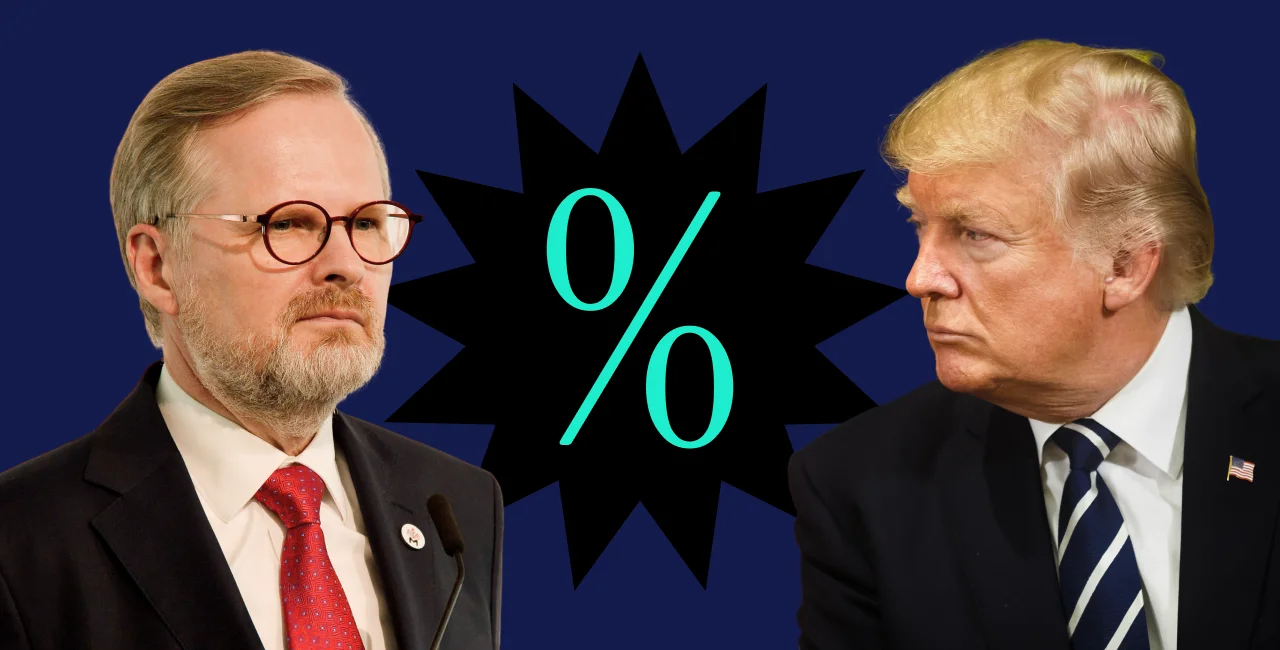As sweeping U.S. tariffs take effect today, Czech politicians, business leaders, and economists are warning of serious consequences for the country’s economy. The fallout has not only united domestic voices in rare agreement—it’s also reigniting debate over one of Czechia’s most divisive topics: adopting the euro.
Government and opposition united against tariffs
Prime Minister Petr Fiala criticized the tariffs as “unfortunate and wrong,” warning that although direct impact on Czechia may be limited, the indirect effects could be very serious. The issue featured prominently at Tuesday’s cabinet meeting in Prague, where the government also reviewed the European Commission’s proposed retaliatory measures. These EU counter-tariffs are set to be implemented in three phases, beginning April 15.
According to Fiala, Europe has no choice but to react to the US measures. "Europe is ready to negotiate with the U.S., but it is also ready to respond clearly. We did not provoke this trade war," he asserted. Fiala added: "The actions of the US side are harming every citizen of the Czech Republic, and we cannot pass this by silence."
Meanwhile, Czech exporters gathered on the same day to discuss the implications for trade. Concerns center around rising costs and supply chain disruptions for Czech companies heavily reliant on transatlantic commerce. The close link between Germany and Czechia's economies could also spell bad news for the latter.
The political debate around the tariffs has also revealed divisions within the opposition ANO movement. Although ANO remains broadly pro-American President Donald Trump, party chairman Andrej Babiš—a vocal Trump supporter—denounced the president’s decision as “completely insane” in a recent interview, even questioning the former U.S. president’s understanding of economic consequences.
The timing of the tariff shock has also lent new urgency to discussions about Czechia’s long-delayed euro adoption. With economic volatility mounting and concerns about currency stability growing, some cabinet members see the situation as a call to act.
Is it time for the euro?
Amid economic dismay facing Czechia and Europe due to the tariffs, the government is again revisiting its long-standing debate over euro adoption.
While coalition members such as the Mayors and Independents support naming a national euro coordinator and outlining a roadmap for ERM II, internal disagreements and fears over economic sovereignty have repeatedly delayed action. A recent government report acknowledged both risks and benefits—warning that euro adoption would mean surrendering control over national interest rates and monetary policy.
Fiala has previously stated that Czechia must first strengthen its public finances before considering euro adoption, stressing the need for significant internal reforms.
In late November, the Government’s National Economic Council issued a private report evaluating the pros and cons of adopting the euro. The report cautioned that joining the eurozone would mean Czechia would lose control over its national interest rates and monetary policies, limiting its ability to address domestic economic issues.












 Reading time: 2 minutes
Reading time: 2 minutes 























